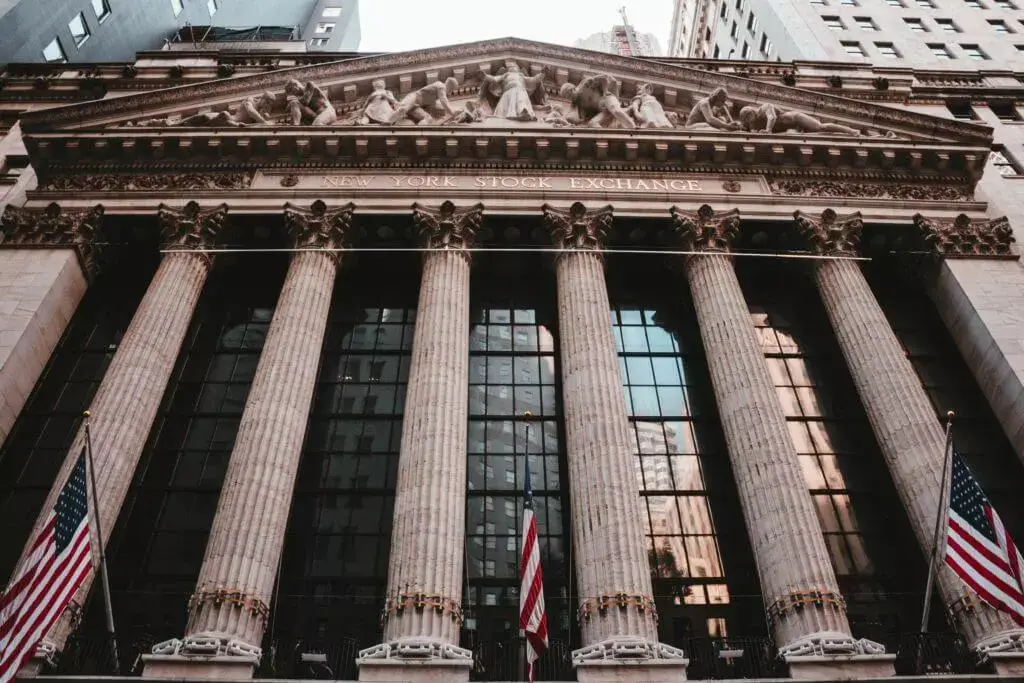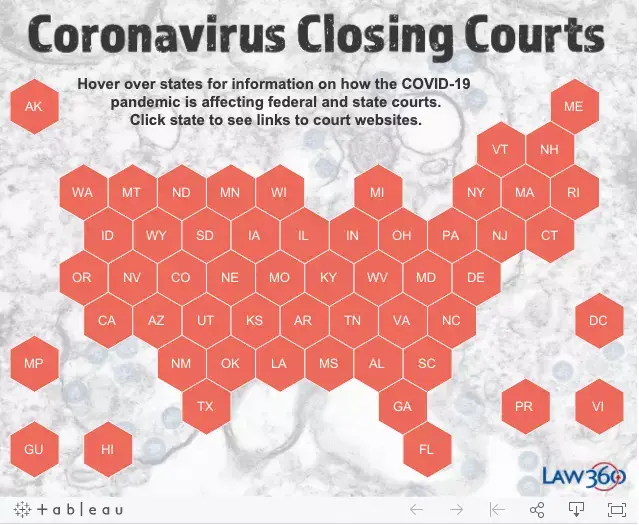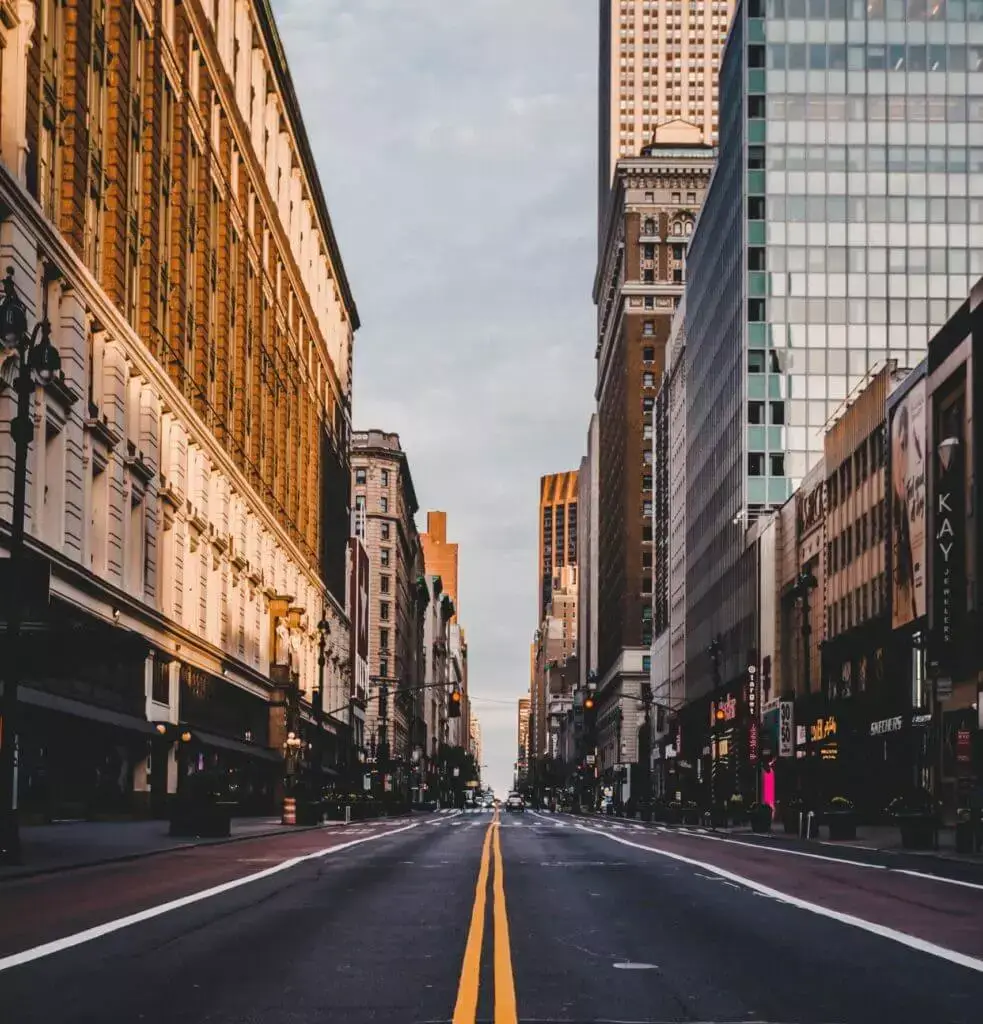We recognize that the impact of COVID-19 on the global economy as well as on our colleagues, clients, families, and friends. Our primary concerns are helping you navigate the stress of legal issues in this volatile and unusual environment.
Courts across the country are taking measures to prevent the spread of the coronavirus, some are restricting access and altering their procedures. Here is a summary of changes in some of the key jurisdictions where your cases are pending.
https://public.tableau.com/views/coronavirus-courts-map/CoronavirusCourtsMap?:embed=y&:embed_code_version=3&:loadOrderID=0&:display_count=y&publish=yes&:origin=viz_share_link
Utah
District of Utah
All civil and criminal jury trials scheduled to begin before May 1 are postponed until further notice. All trial-related deadlines in criminal trials scheduled to begin before May 1 are postponed until further notice, but criminal trials are already underway as of March 16 will continue. Judges con postpone trial-related deadlines in civil cases at their discretion. All grand jury proceedings are suspended through May 1. All currently scheduled hearings in criminal cases are postponed, but the assigned judge in each case may proceed with the hearings remotely.
State Courts
Those with symptoms of COVID-19 and those who may have been exposed to the coronavirus are not allowed to enter any courthouse. The Utah Supreme Court directed state court judges to grant motions for extensions of time liberally. Hearings will be conducted remotely or on the papers, “absent exigent circumstances,” according to the state Supreme Court’s order. District Court and Justice Court judges to suspend all criminal and civil jury trials until after June 1.
Tenth Circuit Court of Appeals
The courthouse is closed to the public from March 17 until further notice. The courthouse will be restricted to judges, court staff, court security officers and service providers with official business with the court. All filings should be made electronically or via mail until further notice.
Texas
Northern District of Texas
All civil and criminal bench and jury trials scheduled to begin through May 1 are postponed until further notice. The postponed does not include other deadlines besides the trial date. All grand jury proceedings through May 1 are postponed, and all deadlines, including the statute of limitations, are suspended through May 1. Public tours and naturalization ceremonies scheduled through May 1 are canceled and will be rescheduled later.
Southern District of Texas
Courthouses are generally closed to the public. The district ordered that any sentencing for which the presentencing report calculates the lowest range of the guideline range at 21 months of imprisonment or more is postponed through May 15. All jury trials that were scheduled to begin on or before May 31 in the Corpus Christi Houston, Galvenston and McAllen divisions are postponed. Grand jury sessions in those divisions are also postponed through May 31. In the Laredo Division, all jury trials scheduled to begin in April are postponed, and grand jury sessions scheduled through May 1 are postponed.
Eastern District of Texas
Attorneys and parties should communicate if court proceedings could cause someone to come into contact with an individual exposed to or infected with the coronavirus.
Western District of Texas
All scheduled proceedings in civil and criminal bench jury trials set to begin before May 1 are postponed, with the exception of pleas, sentencings, criminal matters before magistrate judges, and the issuance of warrants. All deadlines in a scheduling order, besides the trial date, remain in effect unless modified by the assigned judge. Parties are encouraged to participate in nonsentencing proceedings by telephone or video. Other matters such as tours and naturalization ceremonies that were scheduled to take place before May 1 are canceled.
State Courts
Deadlines for filing or service of any civil case are tolled from March 13 until June 1. Dallas County has canceled all jury trials through May 8. The Harris County Civil District Court, serving the Houston area, has suspended jury service through May 31.
Fifth Circuit Court of Appeals
All requirements to file paper copies are suspended until further notice. Extensions with justification may be requested from the clerk’s office. All outstanding deadlines for incarcerated and non-incarcerated pro se filers are extended for 30 days after their due dates. Oral arguments scheduled for April 27-30 are canceled.
California
Central District of California
All courthouses are closed to the public through June 1, except for certain criminal hearings. Courthouse tours are canceled. No civil hearings will go forward except for emergency time-sensitive matters. Any hearings on emergency civil matters will only proceed by telephone. In the bankruptcy court for the Central District, appearances by telephone are mandatory in all matters through June 1.
Eastern District of California
All civil and criminal jury trials scheduled to begin before June 15 are postponed. All courthouses are closed to the public. All civil matters will be decided on the papers or by remote hearings, if necessary. All criminal initial appearances, arraignments, and other essential proceedings will proceed before magistrate judges unless the parties agree to postpone them. Proceedings should be conducted remotely when possible. District judges may postpone criminal matters to a date after June 1.
Northern District of California
All civil and criminal jury trials are postponed until May 1. Essential operations for the Oakland, San Jose and Eureka/McKinleyville courthouses will be consolidated and relocated to the San Francisco courthouse until May 1.
Southern District of California
Civil and criminal jury trials are postponed until April 16. For the district’s bankruptcy court, all hearings will be conducted telephonically through May 16. From April 13 through May 8, the court will prioritize felony criminal sentencings in which the government is recommending a “time-served” or probationary sentence for in-custody defendants.
State Courts
The California Supreme Court suspended in-person oral argument sessions until further notice. Counsel will only appear remotely. All oral argument sessions will be held in the court’s San Francisco headquarters courtroom with limited seating.
Ninth Circuit Court of Appeals
Courthouses are closed to the public during non-court weeks until further notice. The court is evaluating scheduled arguments and will give orders to the cases individually.






